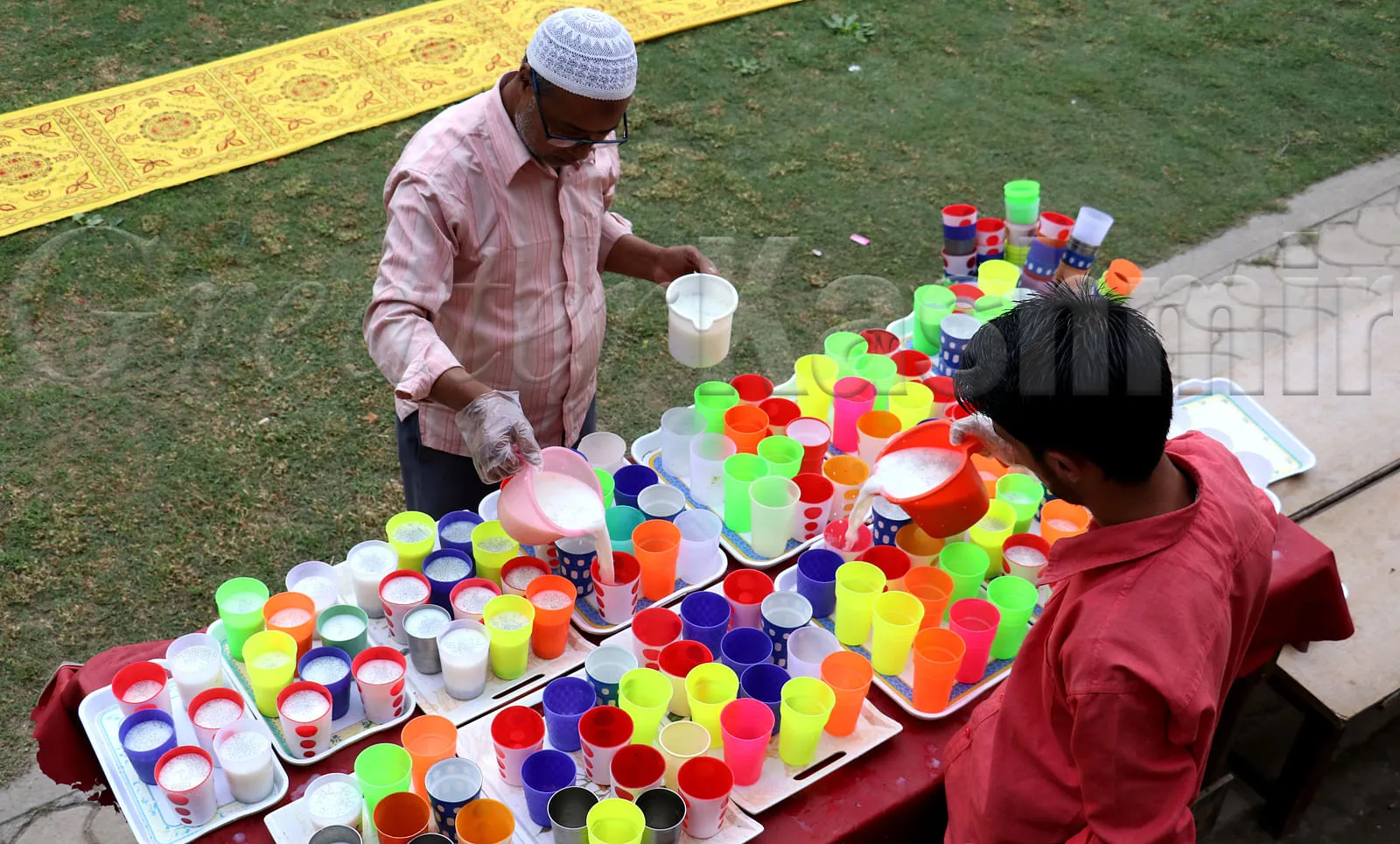Ramadhan is the ninth month of the Islamic calendar observed internationally by Muslims as a month of fasting, prayer, reflection and community. The annual observance of Ramadhan is regarded as one of the five pillars of Islam and lasts twenty-nine to thirty days from one sighting of the crescent moon to the next. Fasting from sunrise to sunset is for an adult Muslims obligatory. Exempted, from this are those who are acutely or chronically sick, travelling, elderly, breastfeeding, diabetic, or menstruating ladies. Although fatwas have been issued declaring that Muslims who live in polar regions with a midnight Sun or polar night should follow the timetable of Mecca, it is a common practice to follow the timetable of the closest country in which night can be distinguished from the day. I remember my earlier days of Kashmir when during this holy month our Muslim neighbours including the children were really looking forward to it and were excited, so were we the Pundits looking at the joyous atmosphere prevailing in the neighbourhood.
The pandemic of COVID 19 poses an enormous challenge for the Muslims during this month. One has to comply with their religious duties as well as be responsible citizen and not to get or transmit COVID. There is no evidence till date to suggest that fasting can increase the susceptibility to COVID infection. If anybody gets symptoms of fever or cough etc a doctor should be consulted and there is a provision including a religious license to break the fast. It means it is safe to fast if you are feeling fit enough. The social events which is a part of this month are best done virtually or just with the people you live with. In person events, especially those that are crowded and held indoors with poor ventilation, vastly increase the threat of COVID-19 spreading should not be organized. We should avoid large events and gatherings because many people who are infected with COVID-19 especially young asymptomatic persons don’t even realize that they are capable of spreading this potentially fatal virus infection to others. For this reason, the safest way to celebrate is to do so at home. If small events need to be done with fewer attendees (preferably with people who live with you), try to use an outdoor venue or else open all the windows and doors for ventilation. Provide masks, hand sanitizers or soap and water, tissues, bins with disposable liners and closed lids. Use distance markers at 2 arm lengths or 6 feet. It is important to talk or announce to all the guests about the safety measures before the beginning of the event. It is strongly advocated that persons more than 60 years of age or with underlying conditions like high BP, diabetes and heart disease should stay away from these events. Observe all the COVID appropriate measures during the event if you must go.
During this month it is important to drink plenty of water, no smoking, no junk food or highly spiced food cooked in fat, high salt intake. Consume plenty of juicy fruits during Sahar and Iftar. Sleep early and sleep well during the permissible hours. Offer special prayers for the sick, alongside messages of hope and comfort. Communicate with them virtually using social digital platforms. Use digital technology for Zakat, avoid crowded Iftar parties and instead distribute pre-packaged boxes of eatables.
Vaccinations must continue, International Islamic Fiqh Academy has ruled that Zakat money may be used to buy and distribute COVID-19 vaccines to those who can’t afford it. Prominent Fatwa bodies, such as Al Azhar Al sharif, have ruled that being vaccinated for COVID-19 will not invalidate the fast. This is because it is delivered through injection and not from a natural opening. The vaccines do not contain pig or human derivatives and are permissible in Islam, meaning thereby that the current vaccines are Halal. Even those devotees who have had both doses of the vaccination need to observe all the COVID protocols because no vaccine is 100% effective and it only boosts the immunity to prevent very serious infections.
Finally, the safest way to worship during Ramzan is at home. Perform wudu at home, taking a personal prayer rug, keeping mask on all times, praying in an outdoor area if possible, keeping at least 1 metre distance between persons, greetings that avoid physical contact like nodding or placing your hand over your heart and observing COVID appropriate behaviour. Last but not the least limiting the amount of time you spend inside the mosque.
My fond greetings to all brothers and sisters for this Holy month. Ameen
Prof Upendra Kaul is founder Director Gauri Kaul Foundation. A recipient of Padma shri and Dr B C Roy Award






